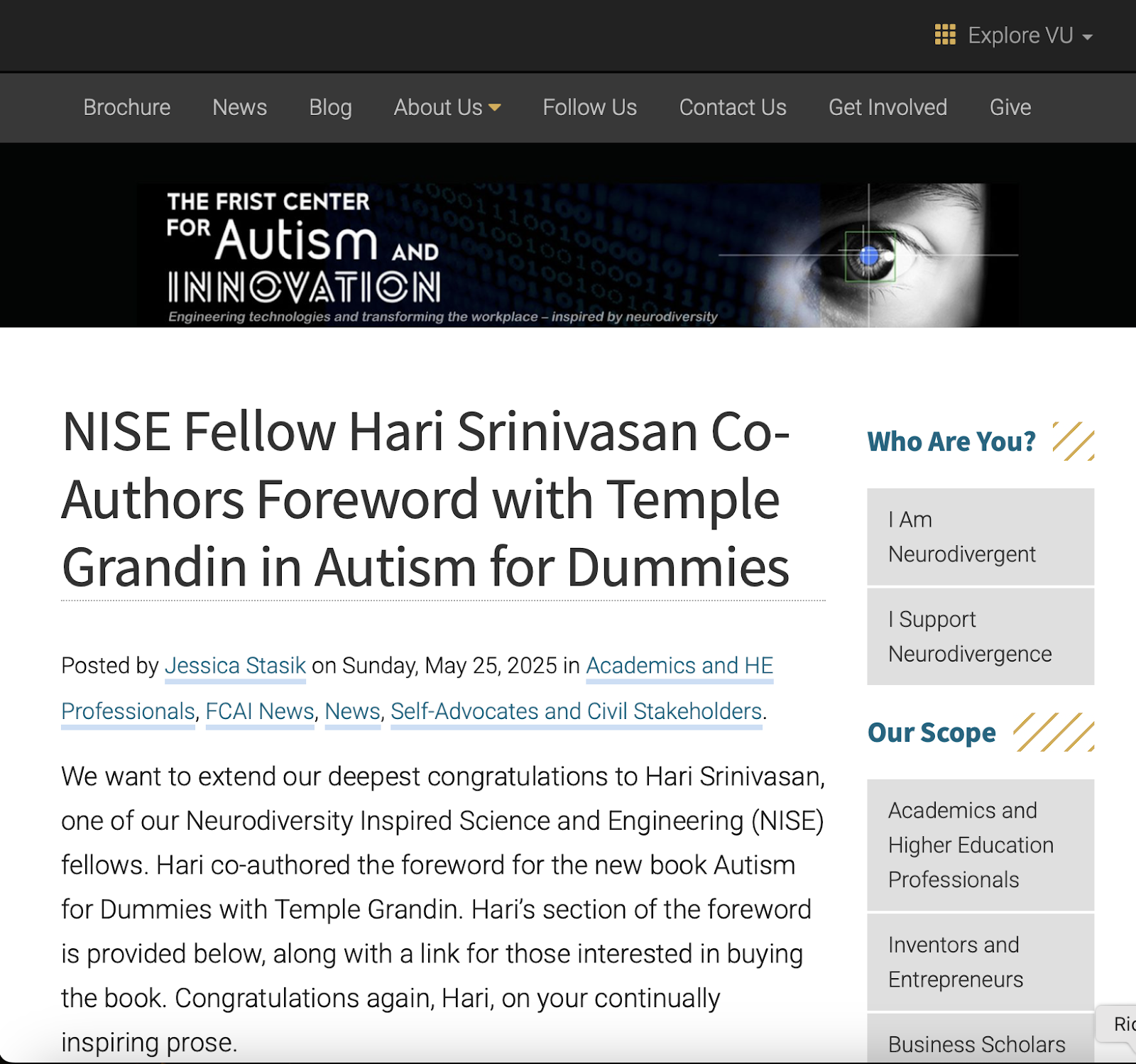It is just so super cool to appear in a National Geographic article. This was a article on the emotion of Awe (the focus of my undergraduate research) and i got quoted on it.
https://www.
“Awe is my reminder that beneath the ordinary lies the infinite” says Hari Srinivasan, a doctoral student in neuroscience at Vanderbilt University
I had a lot of fun with the questions posed to me by the reporter.
What did not get included was how in our n our research on awe in autism, we found that while nature is the top source for everyone, autistic people are more likely to feel awe in science, patterns, big abstract ideas, and even divine or absolute truth, and less in social gatherings. It’s a more abstract and less socially grounded quality of awe. That matters for well-being, because it shows awe isn’t one-size-fits-all - practices like nature walks, stargazing, or exploring new scientific ideas can be especially powerful, low-stress ways for autistic flourishing.



















